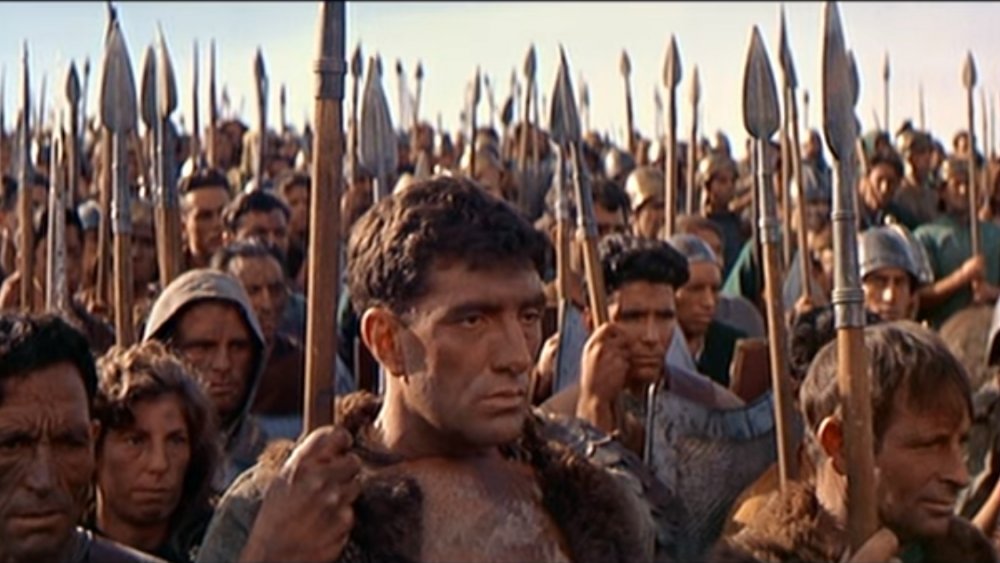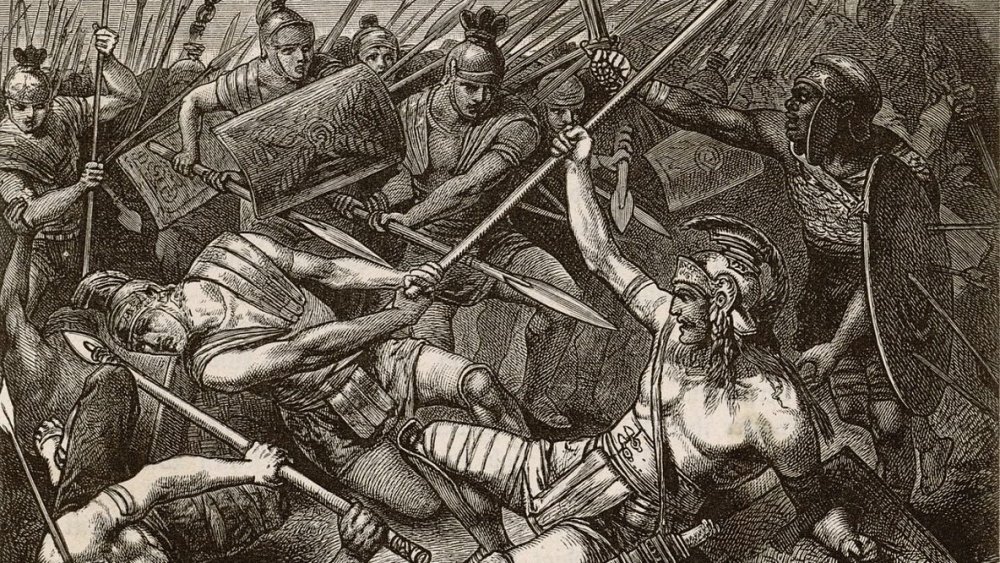The Untold Truth Of The Real Spartacus
The iconic scene at the end of Kirk Douglas's take on the character sees his defeated companions stand, one by one, and declare, "I am Spartacus." It's a rallying cry to this day, people together for a common cause, acting as one. But whether or not the moment actually happened in history, we're still asking: Who was Spartacus? Novels, television, movies only give us hints. We know that he was a real figure. He's described in by the Roman historian Plutarch as a Thracian, which was a loosely defined area of Eastern Europe that included what's now Bulgaria, as well as parts of Greece and Turkey. Informed opinion — but remember, it's just opinion — suggests he was a former Roman soldier who deserted, and was then recaptured. We do know he was sold into slavery and at some point ended up at a gladiator training school at Capua, Italy. In 73 BCE he and 70 others escaped from the school. Other slaves escaped their servitude and joined them, hiding out on Mount Vesuvius — yes, that Mount Vesuvius, which would erupt about 150 years later and take out a chunk of the Roman Empire known as Pompeii.
Spartacus died in battle ... or did he?
Spartacus engaged in what's today called guerilla warfare, gathering equipment and supporters, eventually forming and training an army numbering upwards of 100,000. There was genuine concern at one point that they might attack Rome itself. Instead, in what came to be known variously as the Third Servile War, or the Gladiators' War (which sounds better), he led his force north toward what was called Gaul — northern Italy and France, perhaps with an eye to escape from Roman authority and into freedom. But for some reason — we don't know why — he instead turned his army south. They defeated every Roman force sent against them and reached what's now known as Calabria — think the "toe" of the boot that is the Italian peninsula, perhaps hoping to reach Sicily. Rome finally began to take the insurrection seriously and sent competent troops and commanders to destroy the rebel army. Although Spartacus and his followers broke through Roman forces, a pitched battle at Lucania in 72 BCE resulted in the crushing of the rebellion. Most believe Spartacus himself died in the battle, though his body was never found — so, maybe not? The Romans hunted down and crucified some 6,000 of his followers who had escaped, as a warning to other slaves.

